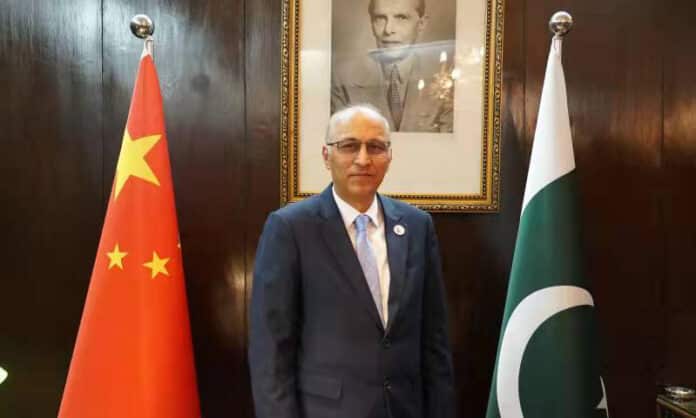The China-Pakistan Economic Corridor (CPEC) has to be upgraded to the China-Pakistan Digital Corridor (CPDC), according to remarks made by President Xi Jinping last year.
When visiting the Guangzhou Institute of Software Application Technology (GZIS), the creator of the first China-Pakistan Intelligent Systems (CPInS) Lab, recently, Pakistani Ambassador to China Moin ul Haque expressed his sincere hope that the laboratory could and should serve as the foundation for Pakistan’s digital blueprint.
At the beginning of the year 2022, the CPInS Lab was officially established at the Pakistan National University of Science and Technology (NUST), with the joint efforts of NUST and the Guangzhou Institute of Software Application Technology. At present, various research projects are in progress in an orderly manner.
The Director of CPInS Lab, Dr. Wu Jun, stated that the use of smart cities in Pakistan will be the next stage. Huge strides are being made in fields like AI localization and UAV control systems.
Moin ul Haque claims that he is most worried about two things: how to use artificial intelligence to kickstart Pakistan’s technology revolution and help it develop more quickly into an emergent industrial nation; and how to use AI to bolster Pakistan’s security infrastructure.
“I am looking forward to a technology industrial park like China’s Zhongguancun thriving in Pakistan. This laboratory has undoubtedly taken the first step. “Regarding smart cities, currently, the Cogniser-V1 intelligent video analysis project, a pilot project with the Government of Pakistan, and our commercial project GymBot are the main projects that are under development.”
Dr. Wu disclosed”Using AI and computer vision algorithms, the former has the ability to sense the people who are lurking around in certain areas and generate warnings regarding dangerous behavioural patterns, for instance, suicide, attack, or other suspicious activities.”
In Pakistan, it also includes licence plate recognition and certain bearded facial recognition. The latter, as an algorithmic system used to recognise body movements, is designed to be a deep learning device using AI and computer vision algorithms and serve as an auxiliary tool in various gym scenarios.
It is also perfect as a training aid for local security personnel. This year marks the 10th anniversary of the Belt and Road Initiative, and the CPInS Lab will showcase the advanced achievements of cooperation between the two countries in artificial intelligence and smart cities.
All-round cooperation with Pakistan in the field of digital economy, conducting digital 3D scanning of Gandhara art and related artificial intelligence development will be carried out next.
The lab will use algorithms to preserve, restore, and reproduce the flourishing of Gandhara art, “Xiang Yang, Director of the China Study Center at NUST, told the reporter. As an emerging economy, Pakistan’s infrastructure is booming day by day. A large number of road cameras and other equipment have not been intellectualised yet, which shows that the CPInS Lab has great potential in the future.
In general, Pakistan’s artificial intelligence business has not yet developed, yet the nation never lacks for sci-tech talent. With confidence, Ambassador Haque added, “Pakistan is completely capable of becoming an artificial intelligence development hub in South Asia and the wider region with further cooperation with China.”


